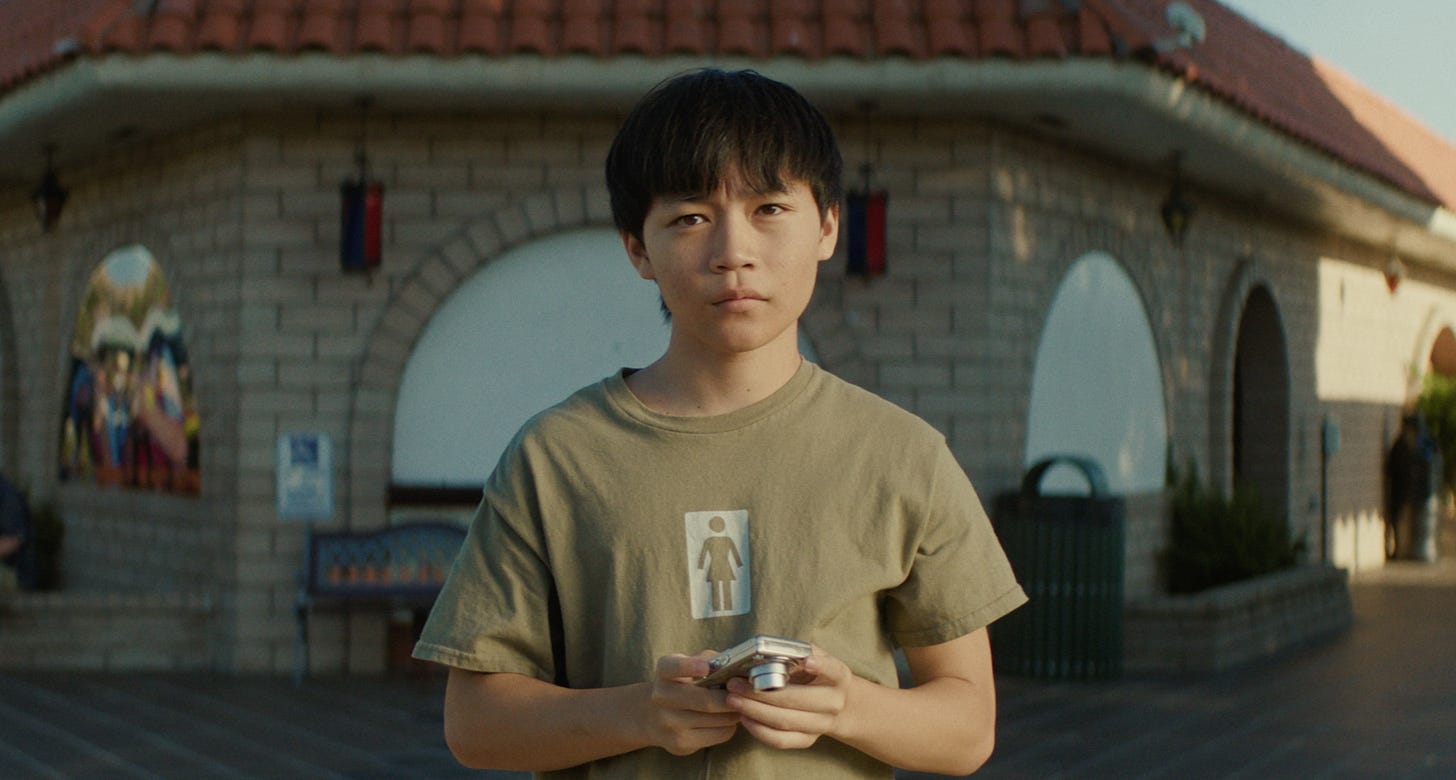Review: ‘Dìdi’ delivers a raw portrait of adolescence and identity
Sean Wang’s “Dìdi” captures the emotional turbulence of adolescence with raw performances and heartfelt, relatable storytelling.
For anyone who spent their early teen years agonizing over how many Ys to put in a flirty “heyyy” or carefully crafting the perfect Facebook status, Sean Wang’s “Dìdi” hits home in a brutally relatable way.
Set against the backdrop of early 2000s digital adolescence, the film captures the universal awkwardness and emotional turbulence of middle school with both humor and heartbreaking realism.
Yet unlike Bo Burnham’s “Eighth Grade,” which revels in the cringe of growing up, Wang’s semi-autobiographical film steers into deeper emotional territory, focusing on the isolation and insecurity that so often accompany those early formative years.
Izaac Wang delivers a standout performance as the film’s protagonist, Chris Wang, a freshly-graduated eighth grader struggling to find his place during a long, hot, meandering middle school summer. Wang’s performance is raw and unflinchingly honest, painting a picture of a kid burdened by the familiar weight of trying – and often failing – to fit in. Whether it’s awkward interactions with his crush or futile attempts to impress the cooler kids, Wang’s portrayal of these moments is painfully recognizable. He carries these universal experiences with a vulnerability that makes him easy to root for, even as we cringe along with him.
At its core, “Dìdi” is a deeply personal exploration of identity. The title itself – Mandarin for “little brother” – speaks to the protagonist’s place within his family and his culture. Caught between two worlds, he grapples with the pressure of balancing his Chinese heritage with the desire to assimilate into American adolescence. These internal struggles are expressed quietly, in sidelong glances or trying to disguise his heritage, but their impact is felt throughout the film. Wang doesn’t rely on big, sweeping moments to explore identity but instead lets the audience feel the tension in the everyday interactions between his characters.
One of the film’s most poignant elements is the relationship between Chris and his underappreciated mother, played by Joan Chen. Chen’s performance highlights the character’s quiet strength and suppressed frustration. She doesn’t have to say much to convey her weariness, but when she does, particularly during the climactic argument with her son, it’s devastating. The tension that builds between mother and son throughout the film comes to a head in a confrontation that is painful to watch because of how real it feels. Chen’s ability to convey the exhaustion of a single mother trying to hold everything together gives the film its emotional backbone.
Though “Dìdi” has moments of levity – small, funny exchanges that break up the emotional intensity – the film’s structure feels a bit loose. As a slice-of-life story, it meanders, more a collection of scenes than a fully realized narrative. While this mirrors the nature of a middle school summer, where days blur together and each moment feels equally monumental and insignificant, the pacing occasionally falters. Some scenes feel disconnected from the larger emotional arc, and at times the film lacks the momentum needed to carry it smoothly from one moment to the next.
Still, what “Dìdi” lacks in narrative cohesion, it more than makes up for in its emotional honesty. This is a film that understands what it means to be young, lost, and searching for a sense of belonging. It’s not always easy to watch, but it’s a film that sticks with you. Wang’s directorial debut is a heartfelt, if occasionally uneven, exploration of the fragile, often painful journey from childhood to adolescence.
Star Rating: 3.5 out of 5.
“Dìdi” is now playing in select theaters and available on PVOD.
The post Review: ‘Dìdi’ delivers a raw portrait of adolescence and identity first appeared on Inside The Film Room.





